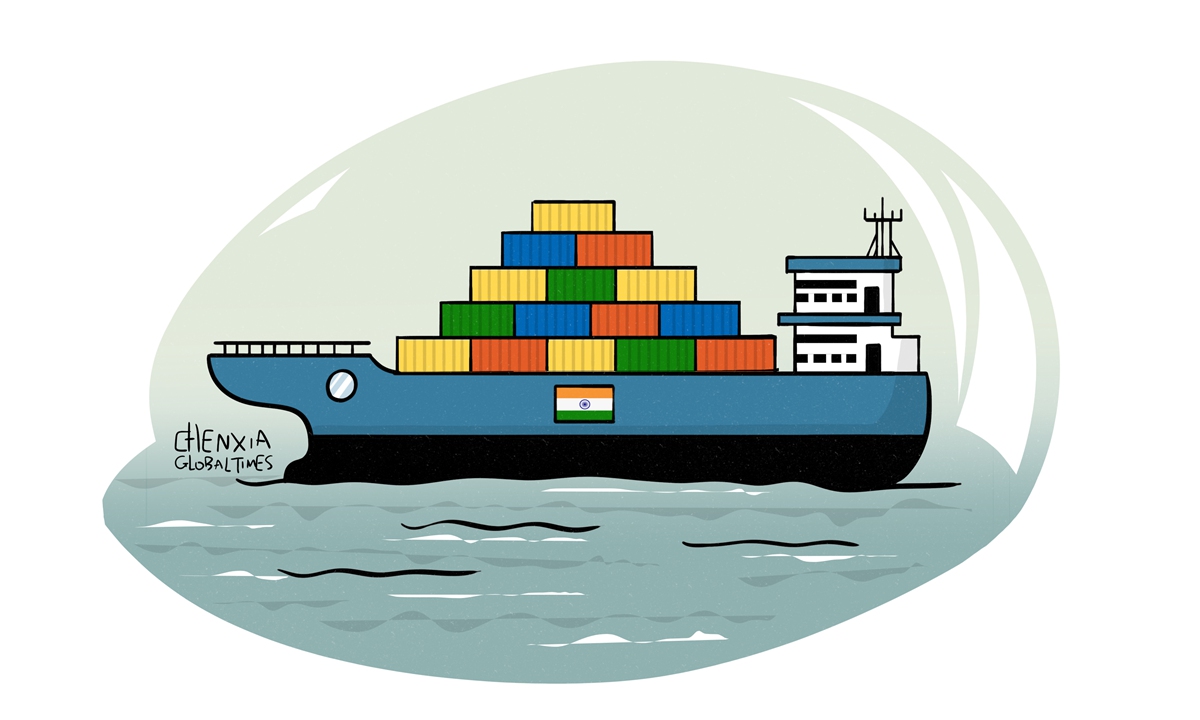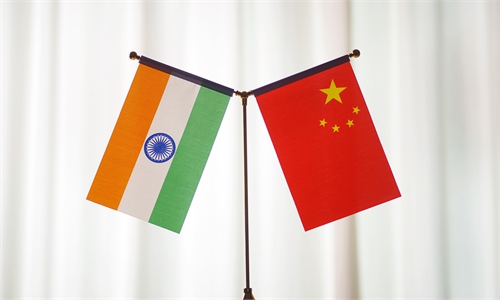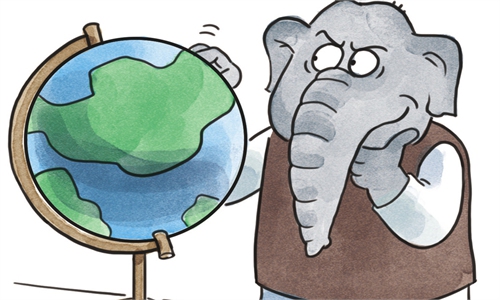
Illustration: Chen Xia/Global Times
Australia's parliament on Tuesday reportedly passed the bilateral free trade agreement with India, bringing it a step closer to the pact's implementation that may push India to expand its opening-up and boost foreign trade.Even as the agreement is only an interim deal that is not as comprehensive in scope and coverage as other free trade agreements, the quick ratification of the trade deal is still good news for India as it is moving toward promoting other free trade agreements with more countries including the UK, Israel, and Canada, according to media reports.
Negotiating the India-Australia free trade agreement was reportedly not a straightforward process. Trade negotiations between the two countries date back to as early as 2011. It was until this April the two sides were able to sign the deal to cut tariffs on billions of dollars of goods. The both sides should cherish the hard-won results in trade liberalization.
India, which has been skeptical of free trade deals for a long time, has shown in recent years a willingness to liberalize trade with other economies, which is an encouraging sign. However, India's aspiration to pursue integration into the US-led economic system instead of choosing to deeply integrate into the Asia-Pacific economic circle has raised eyebrows. For instance, India has not yet chosen to join the Regional Comprehensive Economic Partnership (RCEP) agreement, which has largely boosted economic and trade cooperation in the region since the deal came into force early this year.
Now India is starting free trade negotiations with other countries aimed at lowering trade barriers, removing tariffs and gaining preferential access to global markets. This will push the Indian market to open up to the world, but India can only really boost its economy if it completely dispenses with geopolitical calculations in its drive to open up.
When reporting the progress of India's free trade deal with Australia, some Indian media outlets pushed the cliché that the deal will help Australia to diversify its exports away from the Chinese market to India. The narrative that the deal is to counter China is misplaced, which will only hold India's opening-up process and economic growth back.
Promoting economic cooperation and trade liberalization is not a zero-sum game, and more open India is a good thing for Asia. Similarly, further integration into Asia-Pacific regional economic and trade cooperation will benefit the Indian economy rather than the opposite.
The China-India bilateral trade has witnessed strong growth despite tensions in recent years. An increase in China-India trade in 2021, which reached a record high, surpassing $125 billion speaks volume that New Delhi is unable to reduce its dependence on the Chinese market. The data also demonstrates that China, the world's manufacturing hub and the largest market, is increasingly indispensable in regional industrial and supply chains.
What the Indian economy needs is to increase the level of opening-up to China. Inviting in Chinese companies would help India achieve its manufacturing ambitions. Earlier this month, the National Council of Applied Economic Research, or NCAER, a think tank, prepared a report for industry body the Confederation of Indian Industry that recommended India soften rules on allowing investment from China, if it wants to reach the lofty goal of becoming a $300 billion industry by the financial year ending in March 2026, according to the Wall Street Journal.
The process of expanding India's opening-up and promoting trade liberalization cannot bypass China, let alone Asia-Pacific regional cooperation. Although some Western countries seem to be willing to conduct free trade negotiations with India, they do not plan to make substantive concessions and provide real benefits to the Indian economy.
It is hoped that India can avoid the much-trumpeted "decoupling" rhetoric and embrace Asia-Pacific regional economic and trade cooperation, and truly expanding healthy opening-up that will bring tangible benefits to the country.
The author is a reporter with the Global Times. bizopinion@globaltimes.com.cn



